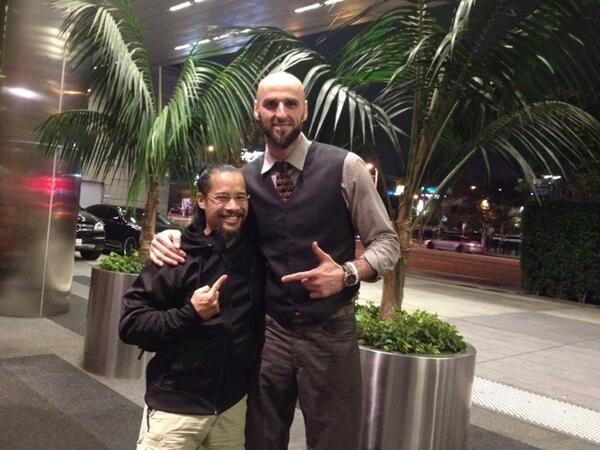After hearing both sides of the debate on caffeine, looking into the health effects of different qualities of coffee, and having this unfortunate quality of needing to verify things in a firsthand manner, I blocked out some time to get an education this morning from a very patient barista at
Intelligentsia on coffee beans, their harvesting practices, brewing, caffeine, and bean quality.
I had a single cup of the barista's personal favorite there as what he said was a single origin, "clean" coffee and consumed no other supplements or stimulants today.
Suffice it to say that my experience has been that coffee, like everything else, can't be thought of with the "It's all the same" mindset. That single cup has kept me going all day without lagging once, without feeling like I'm running on toxins or fumes, and without making me bloated, jittery, or any other negative feeling.
I spent $15 for a 12oz bag of these beans to see for myself if the effects are consistent.... Now, for a similar price, I could have gotten double that amount of instant coffee & wouldn't have had to buy a coffee bean grinder, filters, etc., and wouldn't have to spend the time doing anything other than dumping hot water into instant coffee powder.
Those of you who know me or who've gotten to know me a little better through FB know that I'm about as pressed for time as it gets. I'm also not at the stage in my professional life yet where I'm the
Asian-American Bill Gates & throwing cash around like a rockstar at a strip club.
So why did I spend all that time outside of the clinic & money on something so seemingly unrelated to my orthopedics & rehab specialty? Because one of the things I get asked about VERY frequently is whether or not coffee is bad for you if you're trying to keep a healthy diet.
Without spending a lot of time researching the question, I had to answer honestly by saying, "I don't know, but I have my suspicions." I won't answer a question on any issue that I haven't had time to gather firsthand experience on. Now that I've put some time into looking into this question with more depth, I have to answer the question with my usual phrase
"Context is king."
Bad coffee is bad for you. The cheap stuff that's readily available as instant coffee is made from the lowest quality beans, many of which are infected with molds that are full of
some sinister stuff. I started drinking coffee in high school when I was staying up for all-nighters to get done AP classwork. That stuff has some nasty side effects, such as gas, bloating, fatigue, anxiety, etc., etc., etc... Good coffee is different.
The coffees that are single origin, that are made from beans that are organically grown and mold-free, and that are minimally processed are VERY different animals from their more ubiquitous cousins. I've heard this without variation from the experienced coffee drinkers that I've spoken/corresponded with, and today's experience bears is certainly in line with that. While it's easy to be dismissive & treat coffee with the same sort of carelessness that we treat so many other facets of our lives, we reap in terms of our health what we sow in terms of our diets... or just like with medical care or training, you get what you pay for!




